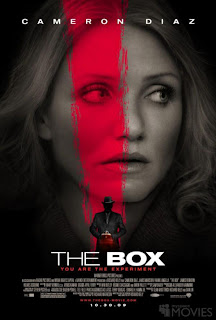Thursday, December 31, 2009
Oscar Picks '09
Tuesday, December 29, 2009
Luminescent 'Pandora:' A World 14 Years in the Making
Tuesday, December 15, 2009
'Globes' Honor Vengeful Jews, War Dramas, Technological Breakthroughs, and Jason Reitman
BEST MOTION PICTURE, DRAMA
• Avatar
• The Hurt Locker
• Inglourious Basterds
• Precious
• Up in the Air
(films snubbed: The Messenger, A Serious Man, Where the Wild Things Are, The Fantastic Mr. Fox, Up, An Education, Star Trek)
BEST PERFORMANCE BY AN ACTRESS IN A MOTION PICTURE, DRAMA
• Emily Blunt, The Young Victoria
• Sandra Bullock, The Blind Side
• Helen Mirren, The Last Station
• Carey Mulligan, An Education
• Gabourey Sidibe, Precious
(actresses snubbed: Arta Dobroshi, Melanie Laurent)
BEST PERFORMANCE BY AN ACTOR IN A MOTION PICTURE, DRAMA
• Jeff Bridges, Crazy Heart
• George Clooney, Up in the Air
• Colin Firth, A Single Man
• Morgan Freeman, Invictus
• Tobey Maguire, Brothers
(actors snubbed: Ben Foster, Sharlto Copley, Johnny Depp, Jeremy Renner, Nicolas Cage, Max Records)
BEST MOTION PICTURE, COMEDY OR MUSICAL
• (500) Days of Summer
• The Hangover
• It’s Complicated
• Julie & Julia
• Nine
(this is pretty accurate)
BEST PERFORMANCE BY AN ACTRESS IN A MOTION PICTURE, COMEDY OR MUSICAL
• Sandra Bullock, The Proposal
• Marion Cotillard, Nine
• Julia Roberts, Duplicity
• Meryl Streep, It’s Complicated
• Meryl Streep, Julie & Julia
(actresses snubbed: Zooey Deschanel)
BEST PERFORMANCE BY AN ACTOR IN A MOTION PICTURE, COMEDY OR MUSICAL
• Matt Damon, The Informant!
• Daniel Day-Lewis, Nine
• Robert Downey Jr., Sherlock Holmes
• Joseph Gordon-Levitt, (500) Days of Summer
• Michael Stuhlbarg, A Serious Man
(actors snubbed: Bradley Cooper, Ryan Reynolds, Jesse Eisenberg, Sacha Baron Cohen, Adam Sandler)
BEST ANIMATED FEATURE FILM
• Cloudy With a Chance of Meatballs
• Coraline
• Fantastic Mr. Fox
• The Princess and the Frog
• Up
(looks good)
BEST FOREIGN LANGUAGE FILM
• Baaria (Italy)
• Broken Embraces (Spain)
• The Maid (Chile)
• A Prophet (France)
• The White Ribbon (Germany)
(films snubbed: Lorna's Silence, Let the Right One In, Coco Before Chanel, The Damned United, An Education)
BEST PERFORMANCE BY AN ACTRESS IN A SUPPORTING ROLE IN A MOTION PICTURE
• Penélope Cruz, Nine
• Vera Farmiga, Up in the Air
• Anna Kendrick, Up in the Air
• Mo’Nique, Precious
• Julianne Moore, A Single Man
(actresses snubbed: Natalie Portman, Maggie Gyllenhaal)
BEST PERFORMANCE BY AN ACTOR IN A SUPPORTING ROLE IN A MOTION PICTURE
• Matt Damon, Invictus
• Woody Harrelson, The Messenger
• Christopher Plummer, The Last Station
• Stanley Tucci, The Lovely Bones
• Christoph Waltz, Inglourious Basterds
(actors snubbed: Richard Kind, Peter Sarsgaard, Alfred Molina, James Gandolfini, Brad Pitt)
BEST DIRECTOR
• Kathryn Bigelow, The Hurt Locker
• James Cameron, Avatar
• Clint Eastwood, Invictus
• Jason Reitman, Up in the Air
• Quentin Tarantino, Inglourious Basterds
(directors snubbed: Spike Jonze, J.J. Abrams, Michael Mann, Marc Webb, Wes Anderson, Robert Zemeckis)
BEST SCREENPLAY
• Neill Blomkamp and Terri Tatchell, District 9
• Mark Boal, The Hurt Locker
• Nancy Meyers, It’s Complicated
• Jason Reitman and Sheldon Turner, Up in the Air
• Quentin Tarantino, Inglourious Basterds
(screenplays snubbed: Lorna's Silence, Invictus, Up, Public Enemies, Funny People)
Suffice it to say, themes of post-war survival, economic stability, underdog glorification, and environmental concern (see: Avatar) are wholly relevant in a year dominated by recession and socio-political commentary. Will the Oscars offer a different outlook? Perhaps, but this year's 'Globe' nominations, I'd say, are an accurate prediction of what's to come in February.
Wednesday, December 9, 2009
'Fox' is 'Fantastic'
 'The Fantastic Mr. Fox'
'The Fantastic Mr. Fox'Monday, December 7, 2009
Economic Stability Still 'Up in the Air'

Review: 5/5
Sunday, December 6, 2009
Inform the NOK, and Do Not Offer Hugs
 'The Messenger'
'The Messenger'Saturday, December 5, 2009
Simply Put: Great 'Education'
 'An Education'
'An Education'Overly Grim 'Precious:' Underdog Story Borders on Ridiculousness

Wednesday, November 11, 2009
A 'Carol' for Everyone

Tuesday, November 10, 2009
Clooney and 'Goats': The Only Two Worth Watching
 'The Men Who Stare at Goats'
'The Men Who Stare at Goats'Look Around: 'Box' is Everywhere
 'The Box'
'The Box'Saturday, October 17, 2009
Seriously? Coen Brothers' Newest Film is Unrelenting

Friday, October 16, 2009
No One's a King, They're All Children

Wednesday, October 14, 2009
Owen, MacKay Elevate 'Boys' Beyond Melodrama

Arrogant 'Amreeka': A 96-Minute Sermon

Sunday, October 11, 2009
'Retreat' is Harmless

Scariest Movie of All Time?... I'd Say No.

Sunday, September 27, 2009
'Silence' is Deafening: Foreign Film is One of the Year's Best

'Whip' Never Cracks: Formula Falls Flat in Drew Barrymore's Directorial Debut

Style Over Substance: 'Fame' is all Flash
 'Fame'
'Fame' 